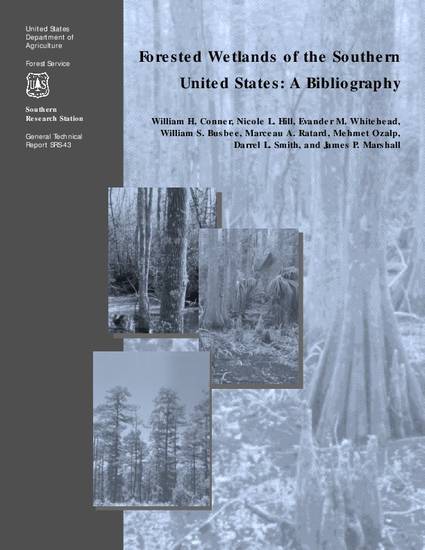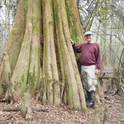
The term forested wetland covers a variety of forest types including mangroves, cypress/tupelo swamps, bottomland hardwoods, pocosins and Carolina bays, flatwoods, and mountain fens. These forests are dominated by woody species that have morphological features, physiological adaptations, and/or reproductive strategies enabling them to achieve maturity and reproduce in an environment where the soils within the rooting zone may be inundated or saturated for various periods during the growing season. Although alluvial floodplains occur along most streams of the United States, they are most extensive in the Atlantic Coastal Plain, Gulf Coastal Plain, and Mississippi Alluvial Plain. Only about half of the original floodplain forests remained by the 1930s, and conversion to agriculture continued at an accelerated pace during the 1960s and 1970s.
The purpose of this bibliography is to provide a detailed listing of references for students and researchers of the varied studies conducted in these forest types.

This article was written and prepared by U.S. Government employees on official time, and is therefore in the public domain.
For copyright questions or concerns, please contact awesole [at] clemson [dot] edu and we will address them as quickly as possible.